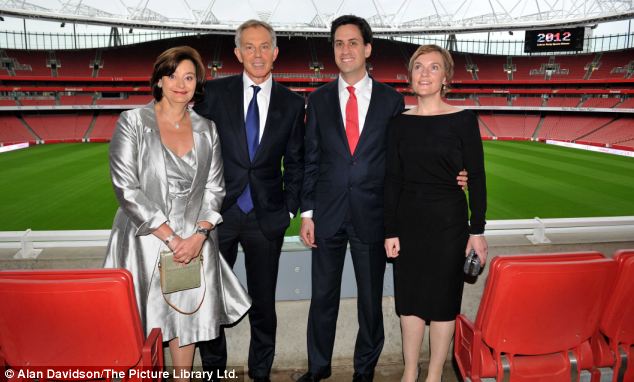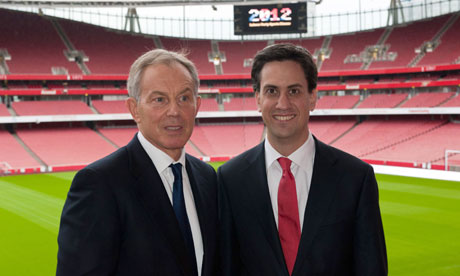By David Cromwell
How many war crimes does a western leader have to commit before he is deemed persona non grata by the corporate media and the establishment? Apparently there is no limit, if we are to judge by the prevailing reaction to Tony Blair’s return to the political stage.
On July 11, it was announced that Blair would be ‘contributing ideas and experience’ to Labour leader Ed Miliband’s policy review. He will apparently provide advice on how to ‘maximise’ the economic and sporting legacies of the 2012 London Olympics.
The Guardian described the announcement mildly as a ‘controversial move’; not necessarily in the country at large, the paper claimed, but ‘perhaps especially within the Labour party’. One Guardian headline declared ‘Return of the king’.
The ‘left-wing’ John Harris did his bit in the Guardian to smooth Blair’s path:
‘He’s only 59, the picture of perma-tanned vitality and keen to “make a difference”. Could a fourth stint in No 10 even be on the cards? We shouldn’t rule it out.’
Harris declared ‘that for all his mistakes, transgressions and howling misjudgments, there remains something magnetic about his talents.’

When Blair appeared at a Labour fundraising dinner at Arsenal’s Emirates stadium, Harris noted that:
‘He was greeted by the obligatory crowd of protesters, still furious about his role in the Iraq war.’
That’s the curious thing about peace protesters; endlessly ‘furious’ about the country being dragged into an illegal war that led to the deaths of around one million people, created four million Iraqi refugees, devastated Iraq’s infrastructure, generated untold suffering and burned obscenely huge sums of public money in times of ‘austerity’. Perhaps we Brits should simply display that famed stiff upper lip and move on. Certainly that’s what Richard Beeston, foreign editor of The Times, suggested in 2009:
‘All this happened six years ago. Get over it.’ (‘The war went wrong. Not the build-up. Stop obsessing about the legality of invading Iraq. The campaign itself was the real disaster’, The Times, February 26, 2009.)
A recent Times editorial welcomed Blair’s return:
‘Labour is coming together, drawing on its best available talent and starting to get serious again. (Editorial, ‘A year in politics’, The Times, July 14, 2012)
The second coming of Blair was launched by a friendly chat on the BBC’s Andrew Marr show. Marr, of course, is well-known as a totally impartial political analyst and a ‘congenial and knowlegable [sic] interviewer’ (to quote a cable from the US embassy in London to Hillary Clinton).
The PR onslaught continued when London’s Evening Standard published an interview with the former PM on the day he ‘guest-edited’ the paper. Would he like to be prime minister again one day? ‘Sure’, he replied. A supportive Financial Times interview with editor Lionel Barber proclaimed:
‘Five years after leaving power, Tony Blair wants back in. He is ready for a big new role. But what exactly is driving him? And can he persuade the world to listen?’
Unnamed ‘friends’ and ‘allies’ were quoted, no doubt passing on the Blair-approved message:
‘Friends say he is desperate to play a bigger role, not because he has any ambition to run for high office but because he wants to be part of the argument. “He would really like to be the centre of attention again,” says one long-time ally.’
A Guardian editorial did its bit to help:
‘he seems to have mellowed a touch since his book [‘A Journey’, published in 2011]; maybe he’s even learnt a little respect for international law.’ (‘Unthinkable? Tony Blair for PM again.’)
The paper continued:
‘Besides, this is no time to fret about the policy details – there is the showbiz to consider. In 2007 John Major likened Mr Blair’s long goodbye to Nellie Melba; the coming comeback must demonstrate he is more like Sinatra and Elvis. There can only be one true heir to Tony Blair, and that is Tony Blair II.’
Could the vanguard of British liberal journalism really be making an editorial call for the return of Blair? It shouldn’t be a total surprise. Recall that even in the wake of the supreme international crime of invading Iraq, the Guardian still called for its readership to re-elect Blair at the 2005 general election.
…


